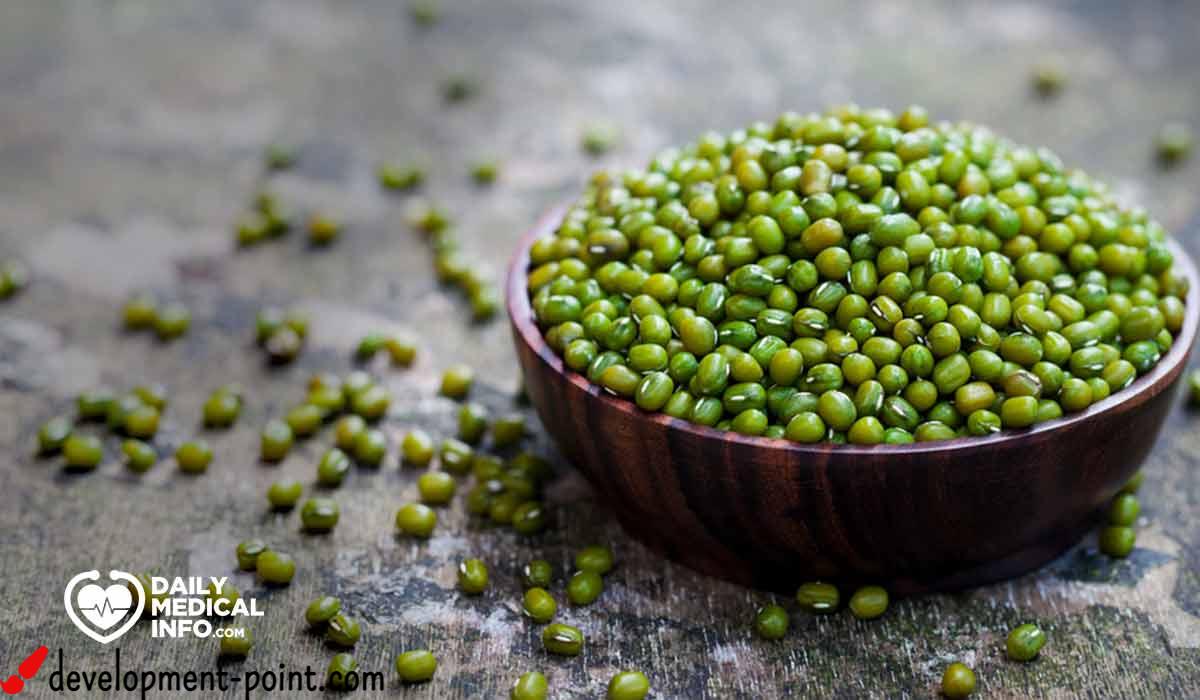Intermittent fasting: types, benefits, and role in weight loss
Intermittent fasting is one of the modern and widespread diets, and it has proven effective in losing weight, in addition to its role in promoting health and lifestyle.
In fact, many studies have indicated the effect of intermittent fasting on the human body, brain, and quality of life.
Through this article, you will learn more about the intermittent fasting diet and its types, in addition to its role in losing weight.
What is the intermittent fasting diet?
intermittent fasting intermittent fasting It is a dietary pattern that depends mainly on the existence of certain periods for eating food, and others for abstaining from eating it.
The types of foods that you have to eat are not determined, but rather the time of eating them, and this pattern is common among civilizations and religions, and in more than one way.
In fact, humans are by nature able to endure periods of time without eating, and this would make the intermittent fasting system suitable for many, and it is very popular in the world of health and fitness.
Types of intermittent fasting
There are several types of intermittent fasting, and more than one method through which it can be followed. Below we mention 5 of these types:
1- The 16/8 method
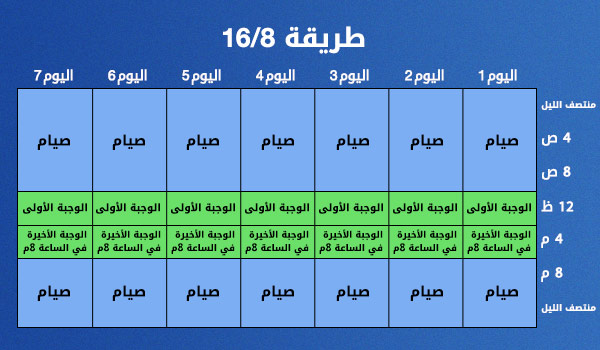
The 16/8 method relies on fasting for 14-16 hours a day, as opposed to 8-10 hours during which you can eat. It can be divided into two or more meals, in accordance with lifestyle. Calorie-free drinks such as coffee without sugar or water can also be consumed during the fasting period.
It is important to choose the types of healthy foods and stay away from fast food or unhealthy foods that cause an increase in calorie consumption.
2- Method 5:2
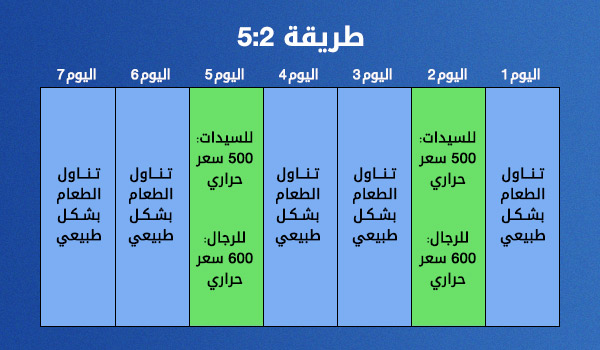
The 5:2 method is based on eating as normal for 5 days a week, and eating no more than 500-600 calories on the remaining 2 days.
For example, you choose Monday and Thursday and eat two small meals, each containing 250-300 calories, and the rest of the days you eat normally.
3- The “eat stop eat” method
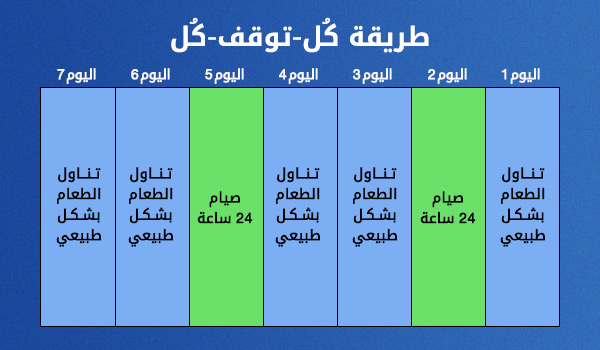
This method of intermittent fasting depends on stopping eating for 24 hours straight once or twice a week. For example, eat dinner at 8 pm on Sunday, and start fasting until 8 pm on Monday. Calorie-free drinks can be consumed during the fasting period.
Many may find it difficult to follow this method, so they can not resort to it directly, but rather start with the easier method than the intermittent fasting diet, which is the 16/8 method.
4- The Warrior Diet
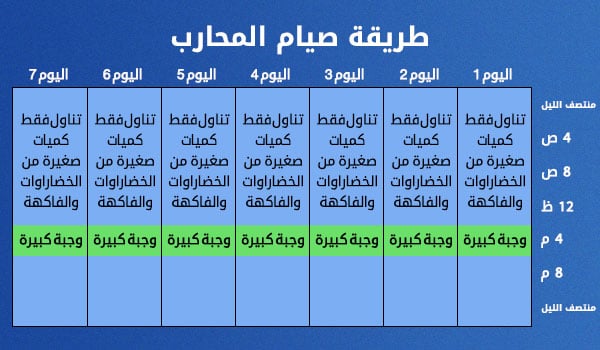
This system can be applied by eating small amounts of vegetables and fruits during the day, and eating one large meal at night. Healthy and whole foods should be adopted and stay away from fast food or processed foods.
5- Fasting day after day
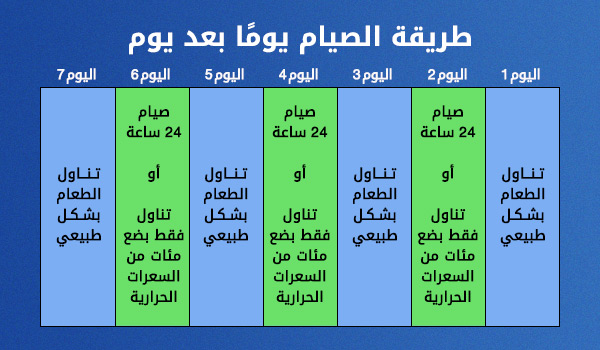
This system is based on fasting for more than one day a week, i.e. fasting for one day and eating the next day as usual, then returning to fasting again and so on. In some types of it, it is allowed to eat food in an amount that does not exceed 500 calories during fasting days, or to abstain from food completely. In fact, this form is difficult, unpleasant, and not sustainable for many people.
6- Automatic meal skipping method

This way you do not need to stick to a structured intermittent fasting plan. Whereas you simply choose to skip meals from time to time, such as when you’re not hungry or you don’t have time to cook.
In fact, many people at some point have tried this method without realizing it.
When you feel the urge to skip a meal due to not feeling hungry, it is basically an application of this method of intermittent fasting. You just have to eat healthy food at other meals.
Role of intermittent fasting in weight loss
The intermittent fasting system is characterized by the presence of varying periods of eating and refraining from eating it, as we mentioned earlier. This makes it superior to diets that depend on reducing calories for long periods.
The body adjusts to the reduced calorie intake and begins to resist weight loss. While in multiple fasting systems, these physiological changes will not occur in the body and it will continue to lose weight.
In addition, intermittent fasting changes the level of hormones to facilitate weight loss. As one of its effects is to reduce insulin levels and increase growth hormone levels, which in turn increases the fat burning process and increases the metabolism rate by 3.6-14%.
Returning to the different forms of fasting mentioned above, all of them have a role in making calorie consumption less on a daily basis. In fact, these systems help to lose weight by 3-8% over a period of 3-24 weeks, or the equivalent of losing 0.25-0.75 kilograms per week. It also helps to lose 4-7% of the waist circumference.
Remember, one of the main reasons intermittent fasting works is that it makes you eat fewer calories. If you eat large meals during your meal times, you may not lose any weight at all.
Health benefits of intermittent fasting
Studies have shown that intermittent fasting has significant benefits for weight control and the overall health of your body and mind.
Here are the primary health benefits of intermittent fasting:
- Lose excess weight and belly fat without the need for harsh diets or calorie restriction.
- Reducing blood sugar level by 3-6%. And reduce insulin levels by 20-31%, which protects against type 2 diabetes.
- Reducing inflammation, which is the main cause of many chronic diseases.
- Reduce harmful LDL cholesterol, blood triglycerides and other risk factors for heart health.
- It may prevent cancer.
- Reducing symptoms associated with some diseases, such as Alzheimer’s, arthritis, asthma, stroke, and multiple sclerosis.
What do you eat in intermittent fasting?
You can eat whatever you want on non-fasting days, and to lose weight you need to get the nutrients you need. Stick to healthy foods and cut back on sweets and processed foods.
As for the days that you will fast, the amount of food will be very limited, for example if you choose the method of fasting day after day, you will only eat 500 calories on the day you fast.
This is roughly a quarter of the amount you would eat on a normal day when you are not fasting. You have the choice if you want to divide these calories into several small meals throughout the day or one meal.
Remember to drink enough water on the fasting days to prevent dehydration. You will need to eat a healthy diet on the days you are not fasting.
You can drink coffee, tea and other drinks that do not contain calories. And coffee (without added sugar) can be especially beneficial during fasting, as it can reduce hunger.
Is intermittent fasting suitable for everyone?
Intermittent fasting is definitely not for everyone. If you are underweight or have a history of eating disorders, you should not fast without consulting your doctor first so that your fasting in these cases will not be harmful to your health.
Intermittent fasting is not recommended for children, pregnant women, and some diabetics.
How do you start intermittent fasting?
It is recommended to start with the 16/8 method, as it is the simplest and most sustainable of the intermittent fasting methods for beginners. Then move on to a longer fast.
If you find it easy and feel comfortable fasting, you may try moving to a more advanced method like fasting 24 hours 1-2 times per week (every stop eat) or eating only 500-600 calories 1-2 days per week (5:2 diet) .
You can also fast whenever convenient, just skip meals from time to time when you are not hungry or do not have time to cook. It is important that you experiment and find a method that works for you.
The harms of intermittent fasting
Intermittent fasting is like normal fasting, the main side effect is hunger, and you may feel weak or your body can’t function as well as it used to. But this effect is only temporary, it may take some time for your body to adjust to the new lifestyle regimen you have chosen.
Like all weight loss methods, intermittent fasting can cause muscle loss, but it’s less than regular calorie restriction, so it’s important to lift weights and keep your protein intake high.
If you have a medical condition, you should consult your physician before attempting intermittent fasting, especially if:
- diabetic patient.
- Having problems regulating blood sugar.
- You have low blood pressure.
- You are taking medication.
- You are underweight.
- You have a history of eating disorders.
- Pregnant, trying to conceive, or breastfeeding women.
- Having a history of menopause for women.
However, intermittent fasting is safe. There is nothing dangerous about not eating for a while if you are generally healthy and well fed.
And with so many different types of intermittent fasting, it makes for a seamless system that you can pick and start with the right one for your lifestyle. Following it will help you lose weight and enjoy many health benefits.

